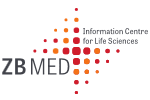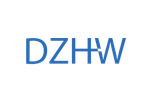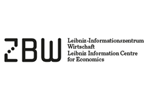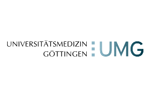There is open-mindedness in the biomedical sciences in Germany towards quantitative methods of performance evaluation and the use of metrics for decision making, steering and assessments. Yet many of the evaluation instruments currently in use are criticized because of their sole reliance on bibliometric and funding indicators as well as their biased incentives for scientists.
In this context, QuaMedFo seeks to develop and analyse a wide and balanced range of (potential) indicators to represent biomedical research activities and scholarly performance. The joint research project analyses different data sources with regard to their indicator suitability and practical usability in different evaluation contexts. DZHW coordinates the project, develops bibliometric indicators and analyses input-output relations based on institutional research information in the RCD standard format (RCD: Research Core Dataset). ZB MED carries out text-mining and patent analyses, ZBW focuses on social media and altmetrics analyses, UMG communicates with the project’s medical pilot faculties, analyses clinical practice guidelines, biomedical congresses as well as replication studies and evaluates the practicability of different data sources and indicators developed in the project.
The project is structured in work packages, each with a different focus: “Coverage analysis of biomedical publications”, “Citation-based impact analyses”, “Content classification of biomedical publications”, “RCD-based input-output analyses”, “Translational medicine, transfer and replication”, “Social media and altmetrics” and “Practicability and acceptance”.
The project is of theoretical and practical value for the ongoing debate on the evaluation of scientific performance in different contexts and for different purposes. In addition, the project results may be used to improve research information systems and performance-based funding systems. Finally, they may also open up avenues for the further development of the RCD standard.
Programme: Quantitative Wissenschaftsforschung
Grant number: 01PU17011A






